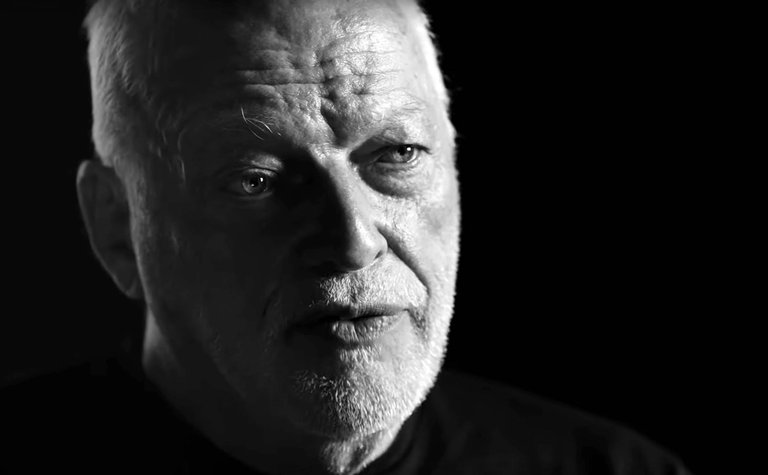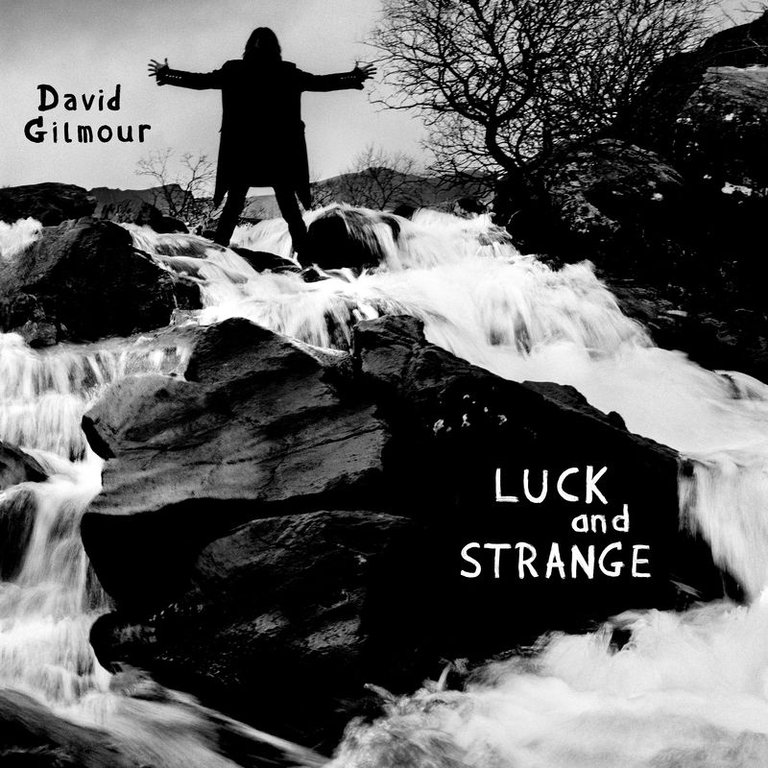
David Gilmour took almost a decade to make a new album. Now "Luck and Strange" is here, a collection of eleven songs that pick up where "Division Bell" put an end to Pink Floyd's history 30 years ago.
He has this special tone, this way of playing. And the voice that billions of people know from songs like "Wish you were here" or "Comfortably Numb". David Gilmour needs less than ten minutes on his new album "Luck and Strange" and his Fender guitar rolls out the sound carpet that has been wrapped up in so many great Pink Floyd songs since "Echoes" in 1971.
Echoes of "Echoes"
But the London band, which, with more than 300 million albums sold, ranks third among the most successful groups in rock history after the Beatles and Led Zeppelin, has been history for 30 years.
Gilmour is the son of a genetics professor from Cambridge and he was a fan of the Beatles and Stones as a teenager. In 1968, he joined Pink Floyd at the request of bassist Roger Waters, keyboardist Richard Wright and drummer Nick Mason to support band leader Syd Barrett, who was suffering from drug-induced psychotic attacks, and to replace him at performances if necessary.
Gilmour and Barrett knew each other from their school days together, they had given street concerts together on acoustic guitars and Gilmour had every intention of doing anything except pushing his old friend away. The rest of the band, however, were so annoyed by the songwriter and frontman's unreliability that a majority decided to kick Barrett out - a replacement had been found.

In the Roger Waters years that followed, it was the guitarist, known for his clear, actually unspectacular sound, who played a key role in translating the major conceptual works designed by Waters into music suitable for the masses.
David Gilmour never pushed himself into the limelight like his colleague on bass. After the global successes of "The Dark Side of the Moon", "The Wall" and "The Final Cut", Gilmour had decided to disband Pink Floyd and concentrate on his solo career. Without him, he believed, Pink Floyd would no longer exist. Gilmour proved him wrong: Together with Mason and later Wright, he led Pink Floyd into a third era of worldwide triumphs with albums such as "A Momentary Lapse of Reason" and "The Division Bell".
Echo of the Pink Floyd years
It is the echo of these years above all that the now 78-year-old conjures up on his fifth solo work. Gilmour is not a string wizard who plays five notes per second and not a singer who climbs up and down the scale. Gilmour's music is whisper rock, a flattering sound that aims at the heart and hits it again and again. Gilmour comforts, Gilmour caresses the soul.
In the title song he sings of the "light before dawn" and of how his heart beats with fear in the theater of his soul, but he knows: "And when the curtain falls, the morning always comes." In “Between two Points”, the tamer of dreams steps away from the microphone and lets his daughter Romany sing.
“Dark and Velvet Nights” is downright rock, a song that owes its origins to a poem that his wife Polly gave him for their wedding anniversary. “The music just popped out of the ground one day,” said David Gilmour, giving an insight into his creative process. Suddenly the groove was there, the sheet of paper with the poem happened to be lying next to him. “So I sang it over the track to hear how it would sound.”
No race with yourself
A bit like Roger Waters in “What God Wants”, a piece by his former colleague and later rival, in which he once again vented his anger about the state of affairs on earth. Waters became musically and politically radical after leaving Pink Floyd. He is still looking for the big ideas, but can no longer find them. The former head of the multi-million dollar band is considered difficult both in his content and in his music, which always seems as if its creator is caught in a race with his former self.
Nothing could be further from David Gilmour's mind. As much as Waters has developed over the years into a radical critic of all conditions, the former other of the two Pink Floyd voices is just as concerned with harmony. His music is a long, calm river. It is not the immortal melodies that captivate listeners, but the sounds that the man produces in the 60th year of his career. Everything is in flow, everything is as if it were chiseled out of a block, "but without any concept album bullshit," as he himself puts it.
Comforter for all situations
No messages, except the one that good music always has. "Take my arm and walk with me," sings Gilmour in the seven-minute-long "Scattered" to a melody that slowly builds up into a Pink Floyd-like sound sculpture. It's about the passing of time, the battle between darkness and light and, of course, love. The keys change, an acoustic guitar trickles in and if it wasn't David Gilmour, everyone would think it was Pink Floyd. https://www.youtube.com/live/iHLB1YRdmTs?si=AfiOp4nVzl3HyMs9
Not that David Gilmour isn't political. Just two years ago, the noise collector and sound experimenter, whose daughter-in-law comes from Ukraine, released the song "Hey, Hey, Rise Up!" together with the other Pink Floyd survivor Nick Mason and the Kiev rock musician Andriy Khlyvnyuk to support the attacked country. "Luck and Strange" leaves out this nuance. David Gilmour is simply doing what he does best: making music.